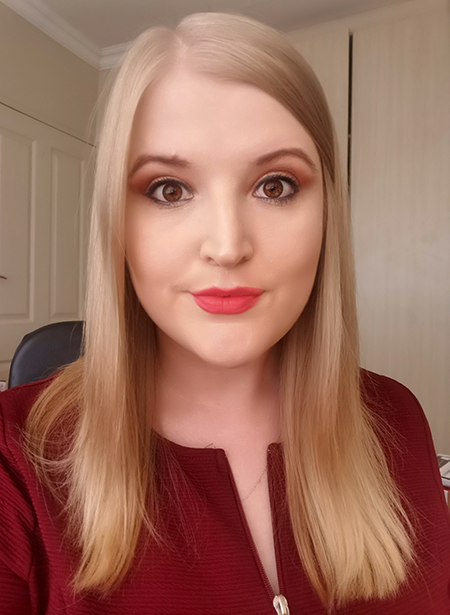Intelligent water management technologies could be the answer to some of South Africa’s water challenges. This is the view of Nicolene Steyn, one of the youngest PhD students at the North-West University’s (NWU’s) Faculty of Law, who believes smart technologies could help ensure the right to water.
Her study, a desktop-based investigation of current sources, is the first to explore intelligent water management technologies and their potential to address legally relevant South African city-level water service delivery challenges.
Her thesis at the SARChI Chair in Cities, Law and Environmental Sustainability (CLES) was recently completed under the supervision of Prof Anél du Plessis (SARChI CLES Chair Holder) and Prof Wian Erlank.
In terms of the Constitution of the Republic of South Africa, everyone has the right to sufficient water provided by local governments. This places local governments in a unique position to assist in making the right to water a reality.
Through a constitutional law and human rights lens, the study looked at cities and how they could improve the water services they provide to communities.
Water in cities is under pressure
Cities face various challenges in providing communities with access to sufficient water, including rapid population growth and urbanisation. Nicolene focused on four specific and under-researched issues.
The first challenge is non-revenue water, which is water lost due to billing errors, theft and meter under-registration in cities. In municipalities, non-revenue water is estimated at more than 37%, and it is worse in many irrigation systems and municipal supply schemes, with some losses estimated at 60%.
The next challenge is illegal water use, which occurs when users create illegal water connections or bypass water meters. For instance, in the eThekwini Metro non-revenue water of more than 40% was reported, with nearly 60% of this being unaccounted for.
The third challenge concerns cities’ lack of relevant data, which they require to understand where they fail and succeed in terms of service delivery.
The final challenge is the sustainability of water services provision. Often, when cities install new water and sanitation infrastructure, it quickly falls into disrepair. Studies show that up to 50% of water points are dysfunctional within two to five years, which frequently leaves people without continuous or reliable access to water.
How smart technology could help plug the leaks
Nicolene proposes intelligent water management technologies as a possible solution. After an extensive literature review, she determined that intelligent water management technologies should be understood as a multidisciplinary term that includes aspects of smart water systems and infrastructure, the internet of things (IoT), ICT , data science, and big data.
These technologies could be applied broadly and used for both planning and operational purposes, as well as for organisational and policy planning across multiple sectors.
Intelligent water management technologies may allow solutions such as leakage detection in pipes or meters, thereby decreasing non-revenue water. Furthermore, by utilising ICTs, data collection can be made more efficient, increasing the frequency of monitoring water assets and reducing manual data errors.
The data collected from ICT systems could be processed using data science, which could add to the information available to municipalities on water usage in specific areas, as well as illegal water use in certain regions based on the analysis of water use versus registered consumers.
The study also made ambitious recommendations that city-level policies and plans specifically aimed at non-revenue water should be developed, along with national legal instruments aimed at eliminating illegal water use. The study recommends that laws on data collection, processing and provision should be developed.
Nicolene acknowledges that empirical research will be necessary to explore exactly how South African cities could benefit from the use of these technologies to tackle water service delivery challenges, making the right to water a reality for all.

Nicolene Steyn is a young researcher who believes smart technologies could help ensure the right to water.
